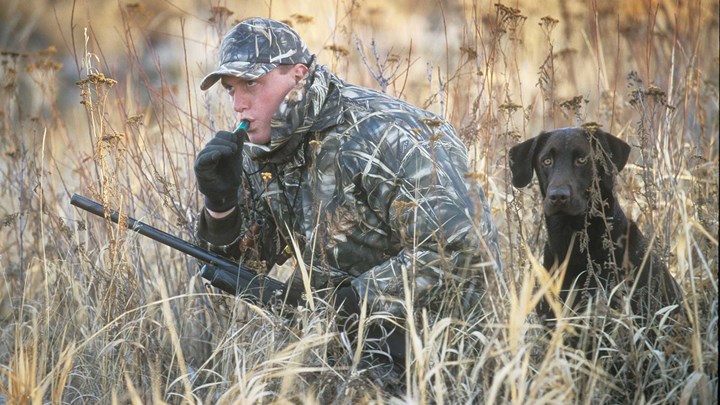
by Mark Chesnut - Friday, August 16, 2024

Good news for hunters and anglers: The U.S. Fish & Wildlife Service (USFWS) has announced a proposal to expand hunting and fishing opportunities on more than 200,000 acres of land within the National Wildlife Refuge System. The not so good news: It seeks to prohibit the use of traditional lead ammunition and fishing tackle for those who plan to enjoy these expanded opportunities.
In its announcement earlier this month, the USFWS said it is targeting 12 national wildlife refuges in Kentucky, Louisiana, Nebraska, North Dakota, South Carolina, Texas, Washington, West Virginia and Wisconsin for expanded opportunities for American hunters and anglers. In total, the expansion would open 53 new distinct hunting and sport fishing opportunities on 12 national wildlife refuges totaling about 211,000 acres.
“Hunting and fishing are traditional recreational activities deeply rooted in America’s heritage,” said FWS Director Martha Williams. “Today, nearly 80 percent of Service stations offer hunting and fishing access that helps boost local economies and connects people with nature. We are pleased to expand access and offer new opportunities that are compatible with National Wildlife Refuge System purposes and are committed to responsibly manage wildlife health and these areas for the benefit of future generations.”
As the USFWS pointed out in a press release announcing the proposed expansion, hunting, fishing and other outdoor activities contributed more than $394 billion in economic expenditures in communities across the United States in 2022, with hunters and anglers accounting for more than $144 billion in expenditures.
Refuges where hunting and/or fishing opportunities would be expanded include: Crab Orchard National Wildlife Refuge (NWR) in Illinois, Green River NWR in Kentucky, Bayou Teche NWR in Illinois, Valentine NWR in Nebraska and Waccamaw NWR in South Carolina. Others include Trinity River NWR in Texas, Turnbull NWR in Washington, Canaan Valley NWR in West Virginia, Horicon NWR in Wisconsin and four refuges in North Dakota—Des Lacs NWR, J. Clark Salyer NWR, Lostwood NWR and Upper Souris NWR.
Unfortunately, while sportsmen and women are appreciative of the additional opportunities to hunt and fish, the USFWS’ proposal also will require the use of lead-free ammunition and fishing tackle in the expansion areas.
“The Service is engaged in a deliberate, transparent process of evaluating the future of lead use on Service lands and waters, working with our state partners, and seeking input from other stakeholders and the public,” the press release stated. “In the interim, we will not allow for any increase in lead use on Service lands and waters, and this proposed rulemaking would not increase the new use of lead on refuges.”
As this website has chronicled many times in the past, the push to ban lead ammunition on various public lands is a contentious one for several reasons, and the NRA Institute for Legislative Action (NRA-ILA) has been involved in the fight against such a ban for decades. As NRA-ILA regularly explains, such a ban would make hunting more difficult and more expensive for hunters who want to access these public lands.
Non-lead ammunition, often made of copper alloys, is routinely cited as being at least 25 percent more expensive than traditional lead varieties. It also can be very difficult to find at retail operations as there simply is not that much of it made compared to traditional lead ammunition. Additionally, those pushing lead ammunition bans are doing so without proof that lead ammunition is harming wildlife populations on public lands, including national wildlife refuges.
Under the National Wildlife Refuge System Improvement Act of 1997, the USFWS permits hunting and fishing along with four other types of wildlife-dependent recreation when they are compatible with an individual refuge’s purpose and mission. Hunting, within specified limits, is currently permitted on 400 wildlife refuges and 36 wetland management districts.
The comment period on the USFWS’ proposed rule runs only until Sept. 3, so interested parties should submit their comments soon. Comments can be made by clicking here.
E-mail your comments/questions about this site to:
[email protected]
Proudly supported by The NRA Foundation and Friends of NRA fundraising.
